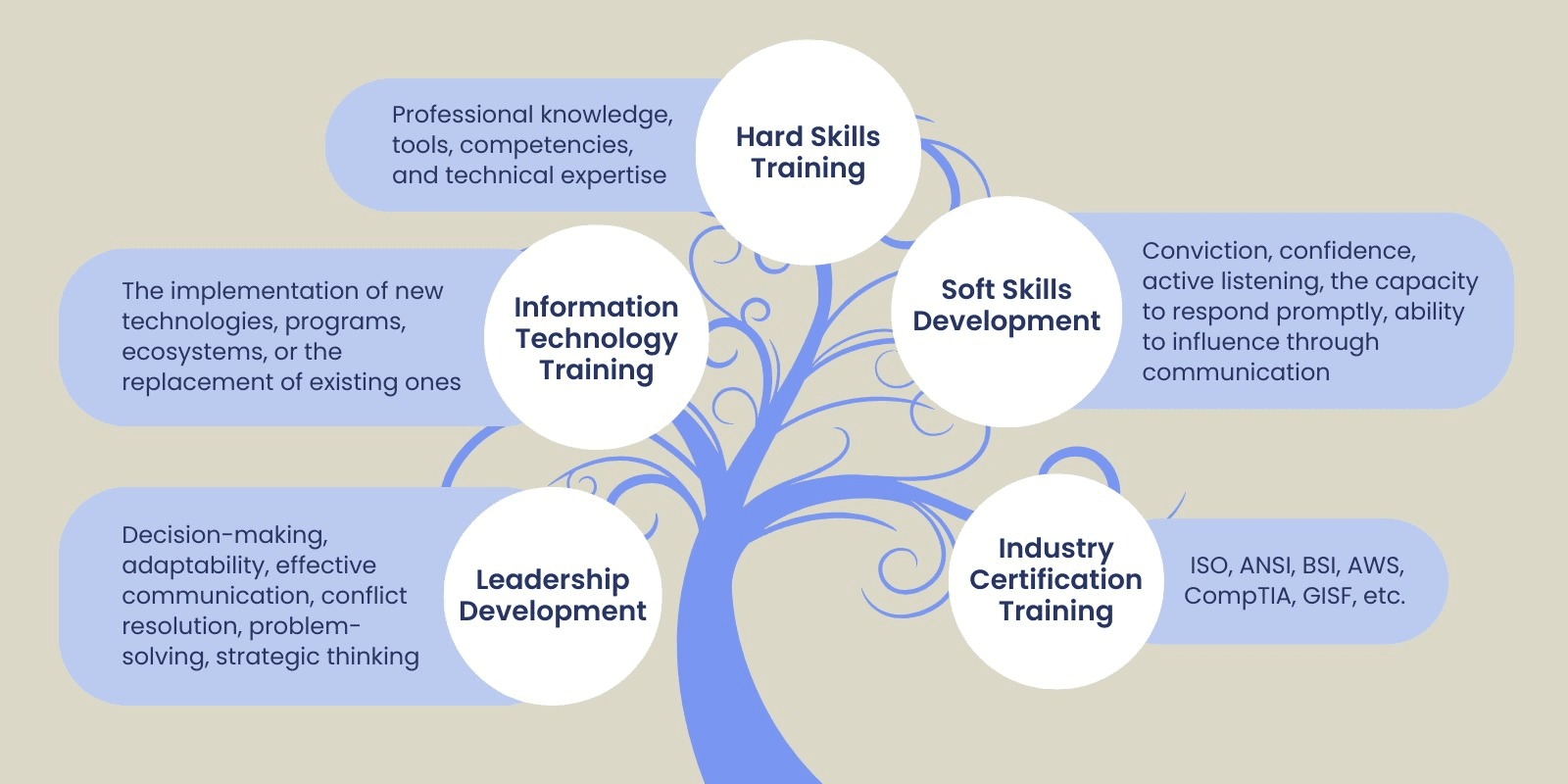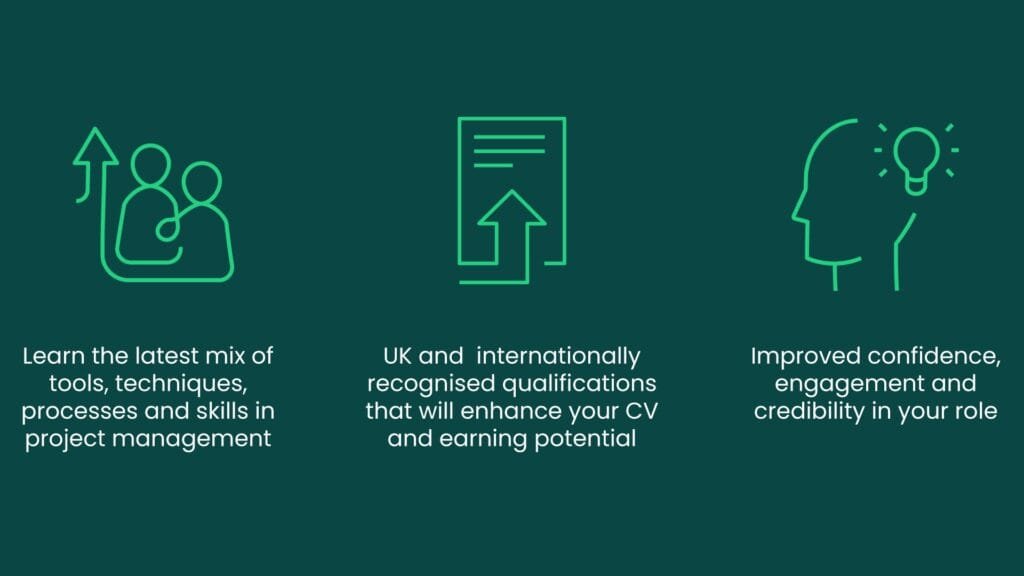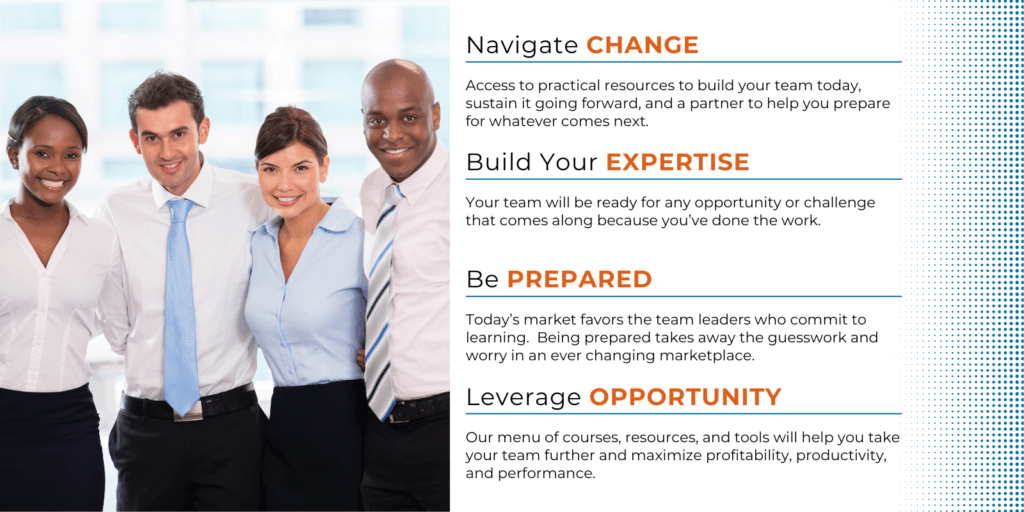Certification and skill development tools boost efficiency and productivity. They ensure your team has the necessary skills.
In today’s fast-paced world, staying competitive is crucial. Certification and skill development tools offer a clear path to enhancing employee skills. These tools help individuals gain industry-recognized credentials. They also provide structured learning, making skill acquisition easier. Companies can track progress and measure improvement.
With regular updates, these tools ensure the latest knowledge. This leads to better performance and higher efficiency. Employees feel more confident and motivated. Investing in these tools benefits both the company and its workforce. It creates a culture of continuous learning and growth.
Importance Of Efficiency
Efficiency is critical in any organization. It ensures that resources are used wisely. With efficiency, tasks are completed faster and with fewer errors. This leads to increased productivity and reduced costs. Certification and skill development tools can play a key role in boosting efficiency. Let’s explore the benefits of focusing on efficiency.
Impact On Productivity
Efficiency directly affects productivity. Employees with the right skills perform tasks faster. This leads to more work being done in less time. Productivity boosts morale and job satisfaction. Efficient workers can handle more tasks, reducing the need for extra staff.
| Productivity Benefit | Description |
|---|---|
| Time-saving | Tasks are completed faster, freeing up time for other work. |
| Better Quality | Efficient workers make fewer errors, leading to higher-quality outputs. |
| Increased Output | More tasks are completed within the same time frame. |

Cost Reduction
Efficiency helps reduce costs in various ways. Skilled employees require less supervision. This reduces the need for additional managers. Efficient processes use fewer resources, cutting down on waste.
- Lower Training Costs: Employees with certifications need less training.
- Resource Optimization: Efficient use of resources leads to cost savings.
- Reduced Errors: Fewer mistakes mean less money spent on corrections.
Investing in certification and skill development can save money. It creates a more efficient and productive workforce. This leads to long-term savings and better performance.
Role Of Certifications
Certifications play a crucial role in the professional world. They validate your skills and knowledge in a specific field. Earning certifications can set you apart from others. They demonstrate your commitment to your career. Let’s explore how certifications impact industry standards and career advancement.
Industry Standards
Certifications help maintain high industry standards. They ensure that professionals meet specific criteria. Organizations trust certified individuals to uphold these standards. Certified professionals often have up-to-date knowledge. They are aware of the latest trends and best practices. This makes them valuable assets to their employers.
| Certification | Industry | Benefit |
|---|---|---|
| Project Management Professional (PMP) | Project Management | Ensures effective project delivery |
| Certified Information Systems Security Professional (CISSP) | Cybersecurity | Protects against cyber threats |
Career Advancement
Certifications can significantly boost your career. They open up new opportunities and roles. Employers prefer candidates with relevant certifications. These credentials can lead to higher salaries and promotions. Certifications also show your willingness to learn. This is a trait highly valued by employers.
- Increased job opportunities
- Higher earning potential
- Enhanced professional credibility
Investing in certifications is a smart career move. They help you stay ahead in a competitive job market. Continuous learning through certifications leads to long-term career success.

Types Of Certification Programs
Certification programs boost your skills and validate your knowledge. Different programs cater to various needs, enhancing both technical and soft skills. Let’s explore these certification programs to maximize your efficiency.
Technical Skills
Technical skills certifications enhance your expertise in specific fields. These programs focus on practical knowledge and industry standards. Here are some popular technical certifications:
- CompTIA A+ – For foundational IT support skills.
- Microsoft Certified: Azure Fundamentals – Basics of cloud services.
- Google Certified Professional Data Engineer – Data engineering with Google Cloud.
- Certified Information Systems Security Professional (CISSP) – Advanced cybersecurity skills.
- Certified Ethical Hacker (CEH) – Skills for ethical hacking and penetration testing.
These certifications require dedication and practical experience. They validate your ability to handle specific technical tasks effectively.
Soft Skills
Soft skills certifications improve interpersonal and communication abilities. These programs are essential for leadership and team collaboration. Some key soft skills certifications include:
- Certified Professional in Learning and Performance (CPLP) – Enhances training and development skills.
- Project Management Professional (PMP) – Leadership and project management skills.
- Certified ScrumMaster (CSM) – Agile project management techniques.
- Emotional Intelligence Certification – Understand and manage emotions better.
- Communication Skills Certification – Improve verbal and non-verbal communication.
Soft skills certifications foster better workplace interactions and improve team dynamics. They are crucial for personal and professional growth.
Skill Development Tools
Boosting skills is vital for career growth and productivity. Skill development tools help in this journey. These tools enhance knowledge and expertise. They also make learning fun and engaging.
Online Learning Platforms
Online learning platforms are popular for skill development. They offer flexibility and a wide range of courses. You can learn at your own pace. Some top platforms include:
- Coursera – Offers courses from top universities.
- Udemy – Provides a variety of courses on many subjects.
- LinkedIn Learning – Focuses on professional development.
These platforms also provide certificates. These certificates can boost your resume. They are recognized by many employers.
Workshops And Seminars
Workshops and seminars are excellent for hands-on learning. They provide practical experience and real-world applications. Some benefits include:
- Interactive sessions with experts.
- Networking opportunities with peers.
- Real-time problem-solving and feedback.
Workshops cover various topics. They range from technical skills to soft skills. Some popular topics include:
| Technical Skills | Soft Skills |
|---|---|
| Data Analysis | Communication |
| Coding Bootcamps | Leadership |
| Cybersecurity | Teamwork |
Attending these events can enhance your knowledge and skills. They also provide a platform to share experiences and learn from others.

Choosing The Right Tools
Choosing the right tools for certification and skill development is crucial. The right tools enhance efficiency and ensure better outcomes. This section will guide you through the process of selecting the best tools for your needs.
Assessing Needs
Start by identifying your specific requirements. Ask yourself these questions:
- What skills need improvement?
- Which certifications are most valuable for your career?
- What is your budget?
- How much time can you dedicate?
Understanding your needs helps in selecting the most appropriate tools. Consider your current skill level and future goals. Make a list of must-have features and nice-to-have features.
Evaluating Options
Once you know your needs, evaluate different tools. Here are some factors to consider:
| Factor | Consideration |
|---|---|
| Cost | Is the tool within your budget? |
| Usability | Is the tool easy to use? |
| Features | Does it offer the features you need? |
| Support | Is customer support available? |
| Reviews | What do other users say? |
Compare different tools using these factors. Make an informed decision based on your research. Look for tools that offer free trials or demos. This allows you to test them before committing.
Credit: www.amazon.com
Implementing Skill Development
Implementing skill development in your team can boost productivity. It ensures employees are equipped with the latest tools and techniques. This approach can lead to a more efficient and competent workforce.
Creating A Plan
Creating a plan is the first step in skill development. Start by identifying the key skills your team needs. Use a skills gap analysis to determine which areas require improvement.
- List current skills
- Identify required skills
- Compare to find gaps
Once you identify the gaps, set clear and achievable goals. Outline the steps needed to achieve these goals. Develop a timeline for each step.
| Step | Action | Timeline |
|---|---|---|
| Step 1 | Identify Skills | 1 Week |
| Step 2 | Analyze Gaps | 2 Weeks |
| Step 3 | Set Goals | 1 Week |
Tracking Progress
Tracking progress ensures your team stays on track. Use tools like progress charts and dashboards. Regularly check in with team members to monitor their development.
- Set up progress-tracking tools
- Conduct regular check-ins
- Adjust plans as needed
Tracking progress helps identify areas where additional support is needed. It also motivates team members by showing their growth.
Consider using software that provides real-time updates. This keeps everyone informed and aligned with the goals.
Measuring Efficiency Gains

Measuring efficiency gains is crucial for understanding the impact of certification and skill development tools. To ensure you are on the right track, focus on clear metrics and feedback mechanisms. This helps in identifying areas of improvement and celebrating successes.
Key Performance Indicators
Key Performance Indicators (KPIs) are essential for tracking progress. They provide a clear picture of how well your team is performing. Here are some important KPIs to consider:
- Completion Rates: Measure the percentage of employees who complete certifications.
- Skill Acquisition: Track the number of new skills employees gain.
- Time to Competency: Monitor the time taken for employees to become proficient.
- Employee Retention: Check if skill development impacts employee turnover.
Feedback Mechanisms
Feedback mechanisms are vital for continuous improvement. They help in understanding the effectiveness of training programs. Here are some methods to gather feedback:
- Surveys: Conduct regular surveys to gather employee opinions.
- One-on-One Meetings: Hold meetings to discuss individual progress.
- Performance Reviews: Use reviews to assess skill application in real tasks.
- Peer Feedback: Encourage team members to provide feedback on each other’s progress.
Combining KPIs and feedback mechanisms ensures a holistic approach to measuring efficiency gains. This leads to better-informed decisions and continuous growth.
Credit: www.amazon.com
Case Studies
Case studies provide real-world examples of how organizations have maximized efficiency through certification and skill development tools. These examples showcase successful implementations and the lessons learned along the way. By examining these case studies, businesses can gain valuable insights into best practices and potential pitfalls.
Successful Implementations
Many companies have successfully integrated certification and skill development tools into their workflows. These tools have transformed their operations, leading to remarkable improvements.
- Company A: Implemented a certification program for their IT team. This led to a 30% increase in productivity.
- Company B: Used skill development tools for their marketing department. They saw a 25% boost in campaign effectiveness.
- Company C: Adopted a hybrid model combining certifications and hands-on training. This approach reduced project completion times by 20%.
These examples highlight how targeted certification and skill development can have a significant impact on business performance.
Lessons Learned
While many organizations have seen success, the journey is not without challenges. The following lessons learned can help guide future implementations:
- Customization is key: Tailor programs to meet specific organizational needs.
- Continuous learning: Encourage ongoing education to keep skills up to date.
- Employee engagement: Involve employees in the planning process to increase buy-in.
- Data tracking: Use analytics to measure program effectiveness and make adjustments as needed.
By learning from these experiences, companies can avoid common pitfalls and achieve greater success with certification and skill development tools.

Frequently Asked Questions
What Are Skill Development Tools?
Skill development tools are resources that help individuals enhance their abilities. They include online courses, workshops, and certifications. These tools improve both technical and soft skills, leading to better job performance.
Why Are Certifications Important?
Certifications validate your expertise in a specific area. They are recognized by employers and can boost your career. Earning certifications demonstrates your commitment to professional growth and can open up new job opportunities.
How Do Certifications Improve Efficiency?
Certifications provide specialized knowledge that can streamline work processes. They teach best practices and industry standards. This leads to more efficient and effective performance in your role.
What Tools Aid In Skill Development?
Online platforms like Coursera, Udemy, and LinkedIn Learning offer various courses. These platforms provide flexible learning options. Additionally, workshops and webinars can also be valuable for skill development.
Conclusion
Maximizing efficiency is possible with certification and skill development tools. These tools enhance abilities and boost productivity. Invest in learning and stay competitive in your field. Continuous improvement leads to success and growth. Embrace these tools for a brighter professional future.
Start your journey to maximize efficiency today.





